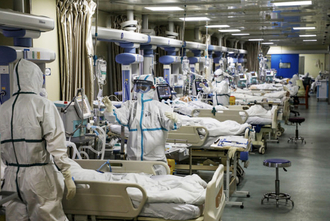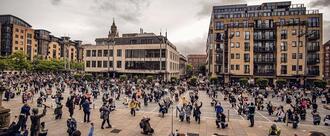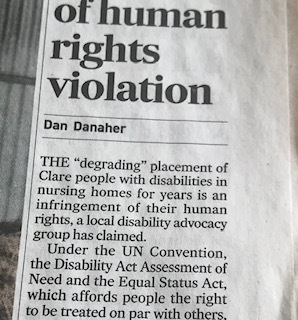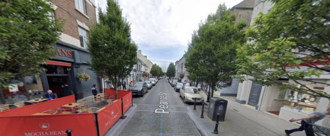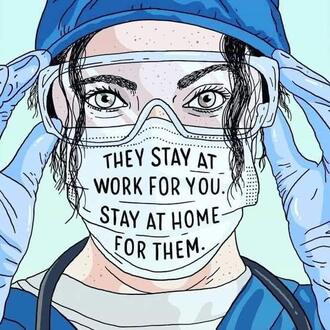- Featured
- Animal Rights
- Anti-racism
- Arts & Culture
- Children
- Climate
- Corporate accountability
- Crime
- Disability rights
- Economic
- Education
- Environment
- Food and Sustainable Production
- Gender Equality
- Governance and Transparency
- Health
- Housing
- LGBT Rights
- Mental health
- Northern Ireland
- Planning
- Privacy and Data Protection
- Rural Inequality
- Social Justice
- Trade
- Transport and Infrastructure
- Workers' Rights
- More
-
Cap Senior Politicians PaySenior politicians are continuously challenged as being 'out of touch' with the electorate. Many would argue it is difficult for politicians to understand the struggles of many of their constituents because, financially, they exist in a different realm. Currently, the AVERAGE ANNUAL earnings of a worker in Ireland is just under €39,000. Meanwhile Senior politicians AVERAGE ANNUAL Salaries and add-on's are as follows; TD = €96,189 Senator = €68,111 Taoiseach = €207,590 Tánaiste = €191,403 Minister = €175,699 Minister of State(a) = €134,976 Ceann Comhairle = €175,699 Leas-Cheann Comhairle = €134,976 Cathaoirleach = €114,130 Leas-Cathaoirleach = €93,468 Leader of the Seanad = €88,288 Deputy Leader of the Seanad = €77,611 Added to this, Oireachteas members also get ADDITIONAL SALARIED ALLOWANCE of up to €19,000, Travel and Accomodation Allowance of up to €35,000 and UN-VOUCHED expenses of up to €20,000 (source https://www.oireachtas.ie/en/members/salaries-and-allowances/salaries/ and https://www.oireachtas.ie/en/members/salaries-and-allowances/parliamentary-standard-allowances/ ) Sign this petition if you believe Senior politicians AVERAGE ANNUAL earnings should be benchmarked to the National AVERAGE ANNUAL earnings, capped (with no add-on's), and Reviewed Annually, as follows; TD - Average Annual Earnings x 2 = €78,000.00 Senator - Average Annual Earnings x1.25 = €48,750.00 Taoiseach - Average Annual Earnings x4 = €156,000.00 Tánaiste - Average Annual Earnings x3.5 = €136,500.00 Minister - Average Annual Earnings x3 = €117,000.00 Minister of State(a) - Average Annual Earnings x2.75 = €107,250.00 Ceann Comhairle - Average Annual Earnings x2.5 = €97,500.00 Leas-Cheann Comhairle - Average Annual Earnings x2.25 = €87,750.00 Cathaoirleach - Average Annual Earnings x2 = €78,000.00 Leas-Cathaoirleach - Average Annual Earnings x1.75 = €68,250.00 Leader of the Seanad - Average Annual Earnings x2 = €78,000.00 Deputy Leader of the Seanad - Average Annual Earnings x1.75 = €68,250.00 All ex. Senior-Politicians pension to be capped at the level of Average Annual Earnings, regardless of office(s) held, and not come into effect until the State Pension (Contributory) Qualifying Age. (Currently 66)45 of 100 SignaturesCreated by Michael James
-
Free Car-Parking for Healthcare WorkersThe public transport system remains unreliable for staff who have no other means to get to work. For those of us who drive we are working extended hours to juggle ongoing childcare issues which have not been rectified by the recent reopening of some childcare facilities. We are and have been under enough pressure for the last 4 months. Free parking is a small mercy to grant us for our tireless efforts. Please reconsider this decision Dublin City Council. Image source: https://www.newstalk.com/news/over-e5m-taken-in-by-hse-in-car-parking-charges-last-year-1325831843 of 1,000 SignaturesCreated by Jen Sheehan
-
Community Facilities in Castlemartyr VillageCastlemartyr lacks community facilities. The residents of the community deserve adequate resources and facilities. We are approaching the 20 year mark since the original donation of funds and nothing has been accomplished. The residents of Castlemartyr want the money returned to where it was agreed the money should be utilized in a community facility.217 of 300 SignaturesCreated by Eileen McCarthy
-
Save Waterford's Municipal Golf CourseThis is the only publicly owned Golf Course in the South East and is much used. A change of use would take from the public an amenity that is valuable for low cost both for the council to provide and players to use. If anything sports facilities should be further developed for users of all ages.855 of 1,000 SignaturesCreated by Una Dunphy
-
Call to Goverment to Stop US Travel to IrelandThe efforts made in Ireland since March 12th to protect the most vulnerable of our society, and our society as a whole, from the threat of COVID-19 which has cost over 1,700 lives in Ireland has cost our residents greatly. Many lost loved ones and were unable to grieve or hold funerals, many lost their businesses or jobs indefinitely or permanently, children have been unable to go to school or childcare, many have had their lives disrupted and we have just started to open the economy back up. To allow tourists from the most infected parts of the US to travel to Ireland at the start of reopening our economy (and arguably the most critical time in this Pandemic for the country) flies in the face of all of our healthcare workers, all frontline staff, anybody that has lost a loved one during this Pandemic (whether due to COVID-19 or not) and all workers and businesses who have sacrificed for the greater good to control the spread. Our Government has expressed their concerns over the economy and the need to reopen, but unlike many continental European countries we are allowing tourists from the United States to enter our country and multiple reports have been made of tourists arriving and not taking the "mandatory 14-day quarantine" seriously. These tourists are arriving from states with the highest COVID-19 cases in the US and from states which have new daily records of new cases as each day passes. "A second wave of Covid-19 would wipe out any chance of economic recovery in Ireland either for this year or next, the Organisation for Economic Co-operation and Development (OECD) has warned." - https://www.irishtimes.com/business/economy/second-covid-19-wave-would-wipe-out-economic-recovery-1.4275388 A growing number of tourists from the US have been arriving over the past 2 weeks and Irish COVID-19 cases have been on the rise, with the reproduction number back at 1.0. These tourists have been refused tourist experiences and entry to restaurants for clearly ignoring the 14-day quarantine/self-isolation requests made by the Government. In this article, our elected officials have been quoted as admitting that these regulations are not being enforced and need to be: https://www.irishtimes.com/news/health/disease-expert-says-jailing-tourists-who-breach-quarantine-would-send-clear-message-1.4302794 "... Luke O’Neill, Professor of Biochemistry at Trinity College in Dublin, said it was a “big mistake” that tourists from states such as Texas are being permitted entry into the country. (from article: https://www.joe.ie/fitness-health/immunologist-us-travel-ireland-70003) While Prof Sam McConkey at the Royal College of Surgeons in Ireland thinks that these tourists should simply be jailed for 3 months for breaking the quarantine rules (see article: https://www.irishtimes.com/news/health/disease-expert-says-jailing-tourists-who-breach-quarantine-would-send-clear-message-1.4302794) it's evident that the best way to stop the spread of COVID-19 to Ireland from the US would be to ban all non-essential travel to Ireland from all US destinations.425 of 500 SignaturesCreated by Amy Ní Chó
-
Strict Quarantine for arrivals from the USAWe are urgently calling on you, the government, to immediately strengthen the quarantine measures for arrivals from the USA. In recent days, we have seen and heard multiple testimonies from concerned citizens regarding tourists arriving to Ireland from the USA and flouting quarantine advice. With 1,746 Irish people dead with Covid-19 to date, this is unacceptable. We immediately need a strict 14 day quarantine imposed on any person arriving from the USA. Strict, mandatory quarantines on inbound travellers have been implemented in several other countries around the world experiencing this crisis, and importantly, they’ve been successful. It has been proven to save lives. We know where the threat of a second wave of COVID-19 is most likely to come from, offshore, as that is where most of the cases are. The USA is currently the epicentre of Covid-19 in the world. We all want to welcome people from the USA, but we have to be certain we safeguard our population, particularly our most vulnerable. This appeal is urgent. Experts like epidemiologist Dr. Sam Comiskey, are calling for a strengthening of quarantine measures and policing to ensure we don’t nullify any success our domestic lockdown measures have had. Healthcare workers and Irish citizens are alarmed at the lackadaisacal attitude of some tourists and some citizens returning to Ireland to the quarantine advice. This is a defining moment in our history and in the leadership of our country. After the sacrifices we’ve all made in recent months, with parents home-schooling their children, grandparents not able to see their children or grandchildren or anyone else, people unable to attend their loved ones' funerals, healthcare workers reaching walls of exhaustion and isolating themselves away from their families, business shutting their doors and people losing their incomes, with 1,746 Irish people dead, to date with Covid-19, we are urging you, the government, to do everything in your power to eradicate this virus and save lives.7 of 100 SignaturesCreated by Sinéad Stewart

-
Funding Essential to Fully Reopen SchoolsParents for Change is a grassroots activist group helping parents assert their voice in Irish society. The right to education is at the forefront of our constitution. Schools are important for the social, emotional and educational development of our children. Schools also provide the economic benefit of stable and cost-effective childcare in a society with a desperately inadequate childcare system. There has been a glaring omission in the roadmap to opening Irish society: schools. There are less than 7 weeks left until the start of the next educational term, yet there is no definitive plan for the education of our children. If the rest of Irish society can open safely, then so too can our schools, with the proper planning and investment. Other countries have shown us that this can be done safely and current HSE research suggests that schools are not a high risk setting for Covid 19. Where there is political will, there is a way. Parents are no longer willing or able to juggle working from home, caring for children and home schooling. Parents accepted this as an emergency measure, but this is no longer acceptable. Plans for blended learning are not a sustainable option for parents or children. The Covid 19 crisis has highlighted many inadequacies in the Irish educational system: years of systemic underfunding; poor pupil/teacher ratios (one of the highest in the OECD); poor school infrastructure including small classrooms; the use of prefabs and no hot water etc. The Department of Education needs to show decisive leadership on the issue of schools reopening fully. Schools cannot operate in a vacuum and direction must come from the top down. Parents for Change supports teachers, principals and teachers’ unions in their drive to open schools safely and are therefore advocating for immediate funding packages to be made available. If funding is in place schools can: · Open fully in September 2020. · Hire more teachers/SNAs to reduce class sizes and allow for social distancing. · Use substitute teachers to fill in for staff absences due to Covid or other illnesses. · Build temporary or permanent structures on school grounds to allow for smaller classes/social distancing. · Hire alternative venues for classes to allow for social distancing (local sports clubs etc). · Hire more cleaners. · Improve cleaning and hygiene standards, including availability of hot water. · Provide face coverings if age appropriate. · Implement strong policies on personal responsibility and sickness within the school community. · Arrange staggered pick up and drop off times for pupils. · Provide safe school transportation. · Provide technology to pupils where necessary to allow them to participate in online learning if in social isolation/quarantine. · Provide extra support for vulnerable children where there might be limited capacity for teaching in the home and ensure they are not left behind. If blended learning is used, it must be for short, specific time periods (e.g. educating children during social isolation/quarantine). Parents need to be able to access government funded paid leave from work during this period and the government must negotiate this with employers. Schools, ECL and childcare are the bedrock of the economy and should be treated like frontline, essential services. Without them, parents cannot participate in the economic recovery of our country. We must invest now in education both for the health of our economy and our nation. We cannot afford not to. Please sign our petition.255 of 300 SignaturesCreated by Jane Toolan
-
Stop Unfair Policing of Black Lives MatterThe news is full of reports on illegal gatherings. However it’s clear that the only group being punished through the hastily approved enforcement powers under Health Protection (Coronavirus, Restrictions) Regulations (Northern Ireland) 2020 are those standing up for racial justice. Eight race hate crimes are reported every day in Northern Ireland. Black Lives Matter protesters last month took a huge stand against racism, and now the PSNI is punishing them for it.753 of 800 SignaturesCreated by Nicola Browne
-
Help Jennifer Get Her Forever HomeNursing homes are not suitable places for young people to live an independent life. Jennifer Hynes is a 42 year old woman, forced to live in a nursing home in Ennis since April 2019 with no plan agreed to end it. Up to then Jennifer lived in her own house. Due to lack of HSE support she was moved into a nursing home. She passionately wants her forever home in Ennis. Her own LA house is still vacant as we write this petition.2,494 of 3,000 SignaturesCreated by Clare Leader Forum Rights Not Charity
-
Trial pedestrianisation of Pearse Street in Ballina for July and AugustBenefits include: — Allowing space for social distancing, giving shoppers and other visitors a higher level of safety. — Allowing for extra space for those who most need it and still need to get about. — Space for outdoor eating from cafes and pubs without cluttering footpaths. — More space for the already growing influx of shoppers and tourists. — The junction at the centre of town will likely flow better with traffic if it was just coming from two ways rather than the current three directions which causes congestion. — Only remove a relatively small number of parking spaces compared to the car parks on both sides of the street. — Have no effect on car parks at AIB Bank or Bank of Ireland or the taxi rank. Some people objecting to changes like this is normal around the world, but a small number of businesses and residents objecting to this should not be allowed to stall this as happens with so much else in Ballina, especially given the strong public health reasoning. When we’re over the current crisis and people don’t like it, it can be removed then. It is only around 140 metres of the street and the street is lined with car parks on both sides with access via laneways. More parking spaces for people who have disabilities or mobility issues can be provided at both ends of the street and near the pedestrian entrances in the car parks. Shot stay spaces can also be provided. The taxi rank outside AIB would not be changed. As other towns have shown, this can be done quickly and cheaply with a mix of planters and bollards. It does not require much funding but if the council requires funding, there is national funding available for post-lockdown mobility measures like this. This was not tried before (it was Tone Street) and for a trial to be meaningful it needs to be trialled for a month or two. In the first week or two traffic might increases as people get used to it, but that’s not a reason to pull the plug.146 of 200 SignaturesCreated by Cian Ginty

-
Prioritise school re-openings in September 2020Remote learning is not a feasible long term substitute to in-school education. Re-opening of schools should be prioritised over the aviation and tourism industries.274 of 300 SignaturesCreated by Molly Hurley
-
Improving Nurses PayAfter watching the RTÉ investigates special and watching the nursing staff of St. James’ Hospital fight COVID on a daily basis, it was harrowing to see just what our nursing staff went through and continue to do so. These nurses watched countless people die and treated them with the upmost respect on their passing even acting as their family members due to the COVID restrictions. Our nursing staff have gone above and beyond across the country to save lives. And as the restrictions are lifted, they continue to fight COVID in our hospitals. This is not over for them and they fear a second wave. Our responsibility as the public to say a small thank you to these amazing nurses is to lobby ever single TD in this country until we increase their wages. Enough is enough. These amazing women and men deserve so much more. This is the least we could do for them. Below is a sample email to send to your local TD17 of 100 SignaturesCreated by Emma Quirke


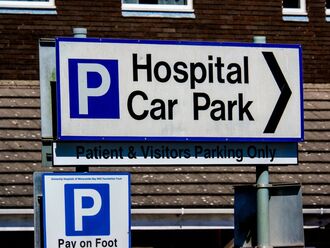

.png)

